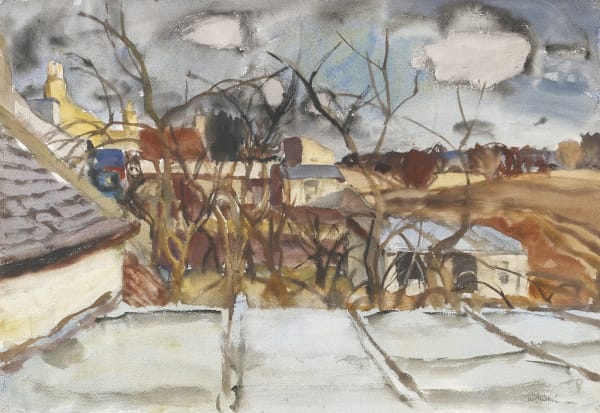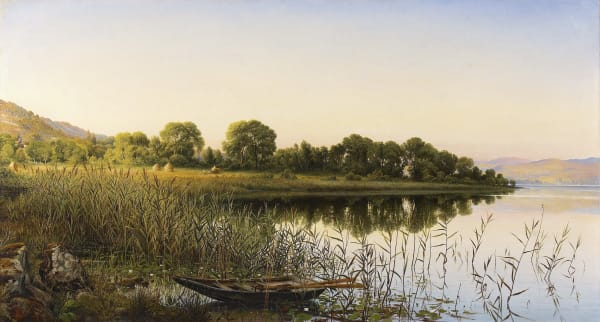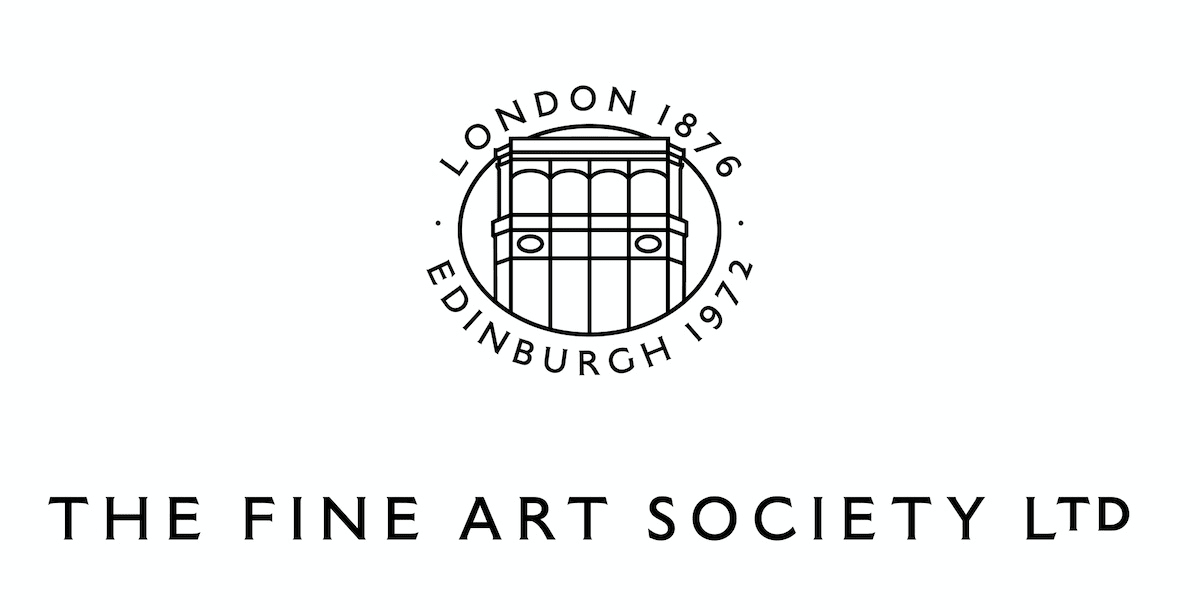Sir William Gillies RA RSA PRSW 1898-1973
Gillies studied at Edinburgh College of Art on either side of the First World War, and upon graduating received a travelling scholarship to Paris, where he studied under André Lhote, and later to Italy. From his time in France his early work was greatly influenced by the Cubist style, and his visit to a Paul Klee exhibition in 1934 marked a similar shift in Gillies’ output.
His move to Temple in 1939 marked a shift in his choice of subject. He had travelled Scotland seeking vistas for his landscapes, though his work around the quiet Midlothian village quickly became more intimate – a celebration of the everyday. He explored his new environment with close views through cottage windows and down narrow streets, shifting his perspective to focus on the terrain.
Gillies began to concentrate on light and colour. “On coming to Temple, I began to cope with my new material by relying on simple planning and tonal relationships as subtle and evocative as I could make them.” This loose, expressive style was particularly well suited to capturing Scotland’s ever changing weather.
The early sixties were a fraught time for Gillies, balancing his own painting career with his position as Principal of the Edinburgh College of Art from 1959. However, after his retirement in 1966, his painting took on a new lease of life.
In 1965, an exhibition of Giorgio Morandi was held at the Scottish National Gallery of Modern Art. His work was of great influence to Gillies, as it was to a number of artists in Scotland at that time. Gillies had always been enthusiastic about still life from college days and as his painting career progressed he strove towards a greater abstraction. 'In still life I felt able to go into almost pure abstraction; in landscape there is a limit beyond which content vanishes completely.'
We are actively seeking consignments of work by William Gillies. Please contact us with details or to enquire after available works by this artist.
-

Art & Design
1890 - 1950 22 Mar - 1 Jun 2024Read more -

Fine Shadings
250 Years of Painting in Scotland 1 Feb - 16 Mar 2024The definition of Scottish Art is wide and draws in artworks and artists with many kinds of association with Scotland. The pictures in this show illustrate not just topography, for...Read more





